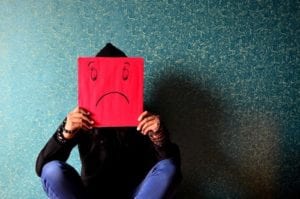Link between alcohol and depression called ‘undeniable’
Alcohol is legal in the United States for those 21 and older, but the Centers for Disease Control and Prevention says people between the ages of 12 and 20 drink about 11 percent of the alcoholic drinks the country consumes. A 2016 study in the journal Pediatrics shows that 11.5 percent of those in that age group reported a major depressive episode in 2014, up from 8.7 in 2005 — a 37 percent increase.
One recent American Addiction Centers (AAC) report suggesting that the connection between the alcohol and depression is particularly tricky. The report explains that it’s logical those who suffer from depression would seek the temporary relief that a drink can provide; but it is quick to point out that abuse invariably feeds the depression. Meanwhile, it asserts, the connection between abuse and depression is “undeniable” in all age groups.
Personality, environment, genetics
The American Psychiatric Association, the AAC report says, notes that depression affects 1 in 15 people at some point in their lives. It adds that the episodes are generally seen for the first time anywhere from the late teens to the mid-20s. About one-third of women, it says, will experience a depressive episode in their lifetimes.
The report notes that sadness, poor sleep, fatigue and loss of concentration are among the traits seen in the condition — all of which are mitigated by drink, the readily available and socially acceptable medication of choice for many depressed. Personality, environmental factors and genetics also play a role in the condition’s development.
Consequences in the real world
Alcohol can lower levels of serotonin and norepinephrine, which regulate mood. It also temporarily terminates the effects of stress hormones, depressing the nervous system and the brain. It’s also important to note that alcohol may activate a gene linked to depression and other mental health issues, such as seizures and manic depression.
The AAC study adds that the abuse brings a cluster of negative effects on virtually every aspect of life. It fuels consequences in relationships and careers, with a worsening case of depression the result. The abuse continues in an effort to medicate the symptoms of depression; the depression thus feeds the abuse.
Less effective medication
The report notes that those who take antidepressants to manage their condition can experience additional ill effects from alcohol abuse, because alcohol makes antidepressants less effective. Because of this the depressants effects (or lack thereof) will further worsen the now-unmanaged or less-managed depression.
The report concludes that while either abuse or depression can be difficult to treat, a situation with both conditions occurring often results in worse outcomes. This co-occurrence is common, and treatment facilities like Avalon Malibu are equipped to treat both disorders simultaneously.
Integrated treatment is the most effective way to achieve recovery on all fronts. If only one disorder is treated without addressing the other, relapse is highly likely. Abuse and depression are a dangerous tandem but they are highly treatable and recovery is possible.
Avalon Malibu is a world-renowned, California state-licensed mental health and substance abuse recovery center. If you are ready to seek treatment to develop the tools you need to overcome life’s obstacles and be on the road towards happiness, health, and well-being, know it’s never too late, and there are people here ready to help you.











